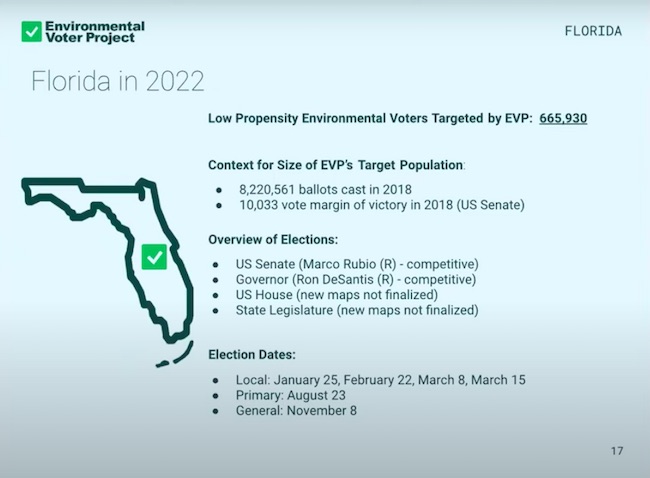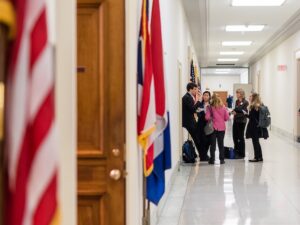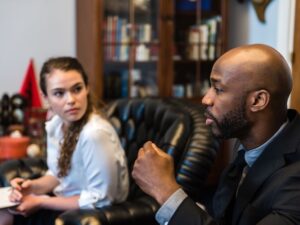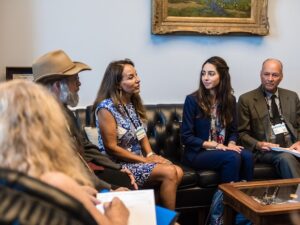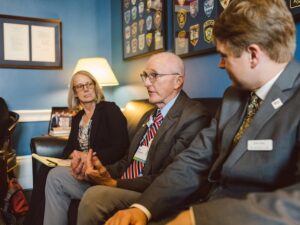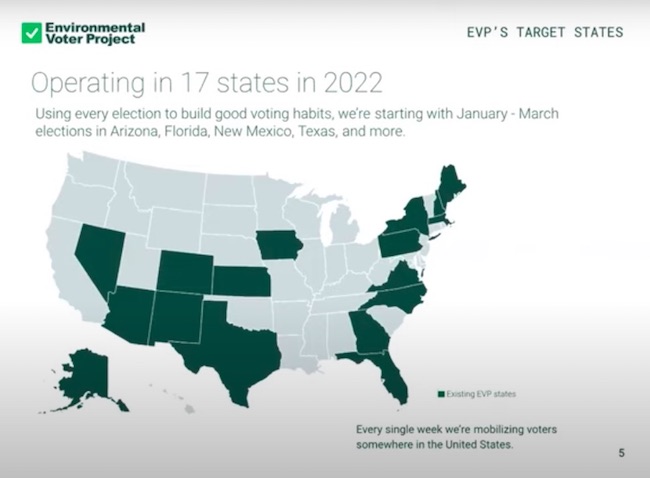
Environmental Voter Project is targeting 17 states in which they’ll work to increase turnout of environmentalists in this year’s elections.
By Steve Valk
I sometimes paraphrase former Defense Secretary Donald Rumsfeld by saying, “You don’t save the world with the Congress you wish you had; you save it with the Congress you have.” And by that I mean we can’t wait around for the “right people” to get elected in order to enact climate solutions. You go to work and play the cards you’re dealt.
But what if we could manifest a Congress that is more amenable to passing climate legislation? What if we could use the ballot box to put people in office from both parties who are as worried about climate change as we are and who are ready to step up in support of legislation that brings down heat-trapping emissions? What if we could alter the priorities of Republicans and Democrats in Congress simply by getting more climate-concerned constituents to the polls?
It would certainly make our jobs as climate advocates much easier.
That’s what Nathaniel Stinnett was surely thinking in 2015 when he started the Environmental Voter Project. Research showed that environmentalists, the people most concerned about climate change, tend to be no-shows at the polls.

Getting environmentalists to the polls is about moving climate change higher on the agenda of all members of Congress. Constituents can write and call their senators and congressmen and ask them to act on climate change, but unless those constituents consistently vote — and that information is public record — their opinions aren’t taken seriously. But when lawmakers see that climate advocates are also voters, the issue becomes important to them, too.
“Nothing motivates a politician more than the prospect of winning or losing an election,” Stinnett said after the 2020 election. “It’s crucially important for climate voters to continue building our political power and flood the polls in local and state elections.”
After crunching the data in all 50 states, EVP settled on 17 states where the organization would work to turn out environmental voters this year. The decisions were based on the number of non-voting environmentalists who could be reached and the percentage of the vote they might represent. “These are the states where there are disproportionately large populations of these non-voting environmentalists. This is where we know we can have the greatest impact.”
As Stinnett reviewed each state during the January briefing, the potential impact was obvious. Take Florida for example:
The state will have competitive races for both the U.S. Senate and the governor’s office. The margin of victory in the 2018 Senate race was 10,033 votes. EVP is targeting 665,930 “low propensity environmental voters.” Turning out even 10% of those people will push candidates from both parties to pay more attention to environmental issues.
The other opportunity EVP has set its sights on is drop-off voters, who represent about a third of the 2.9 million voters the group is targeting. These are people who may have voted in the presidential election but then fail to show up for the midterms. “These drop-off voters are particularly important because they at least have some recent experience voting,” said Stinnett.
In other words, drop-offs are the low-hanging fruit, of which EVP is looking to pick 259,703 in Florida alone.
Hundreds of Citizens’ Climate Lobby volunteers have worked with EVP during previous election cycles, canvassing door-to-door, making phone calls and sending postcards to potential voters. EVP does not tell people which candidates or parties to support. Jeff Joslin, a CCL leader in the North Atlanta chapter who volunteered with EVP, said, “We’d ask if they signed up for early voting and provide information on how to vote early. If they brought up a candidate or party they didn’t like, we kind of side-stepped that.”
CCL Executive Director Madeleine Para says it’s important for environmental voters of both parties to be consistent voters. “That would create an environment where every Republican and every Democratic candidate has to have a strong position on climate change in order to be viable.”
With election season gearing up, many Citizens’ Climate Lobby volunteers are looking for ways to strengthen our democracy and increase voter participation. CCL is again encouraging people to check out EVP. You can sign up to receive updates and volunteer opportunities on their website.
In addition to volunteering with EVP, CCL has a number of suggestions that can be found in the 2022 Chapter Action Guide on CCL Community:
- Use your democracy: Make sure you vote and that you understand what you need to do in order to vote.
- Help others participate: Work locally to help the people around you vote, either personally one-on-one with people you know or by working with a local organization that helps people register and vote.
- Take off your CCL hat and help campaign personally for candidates of any party that align with your values.
- Open dialogue with people you disagree with. Join our Braver Angels Action Team and/or the Braver Angels organization.
- Consider supporting other organizations that take a bi-partisan approach to keeping democratic systems strong in our country. Here are two examples: Issue One and Unite America.
As we often say at CCL, democracy is the solution to climate change, and there are many ways to wield that essential tool.

